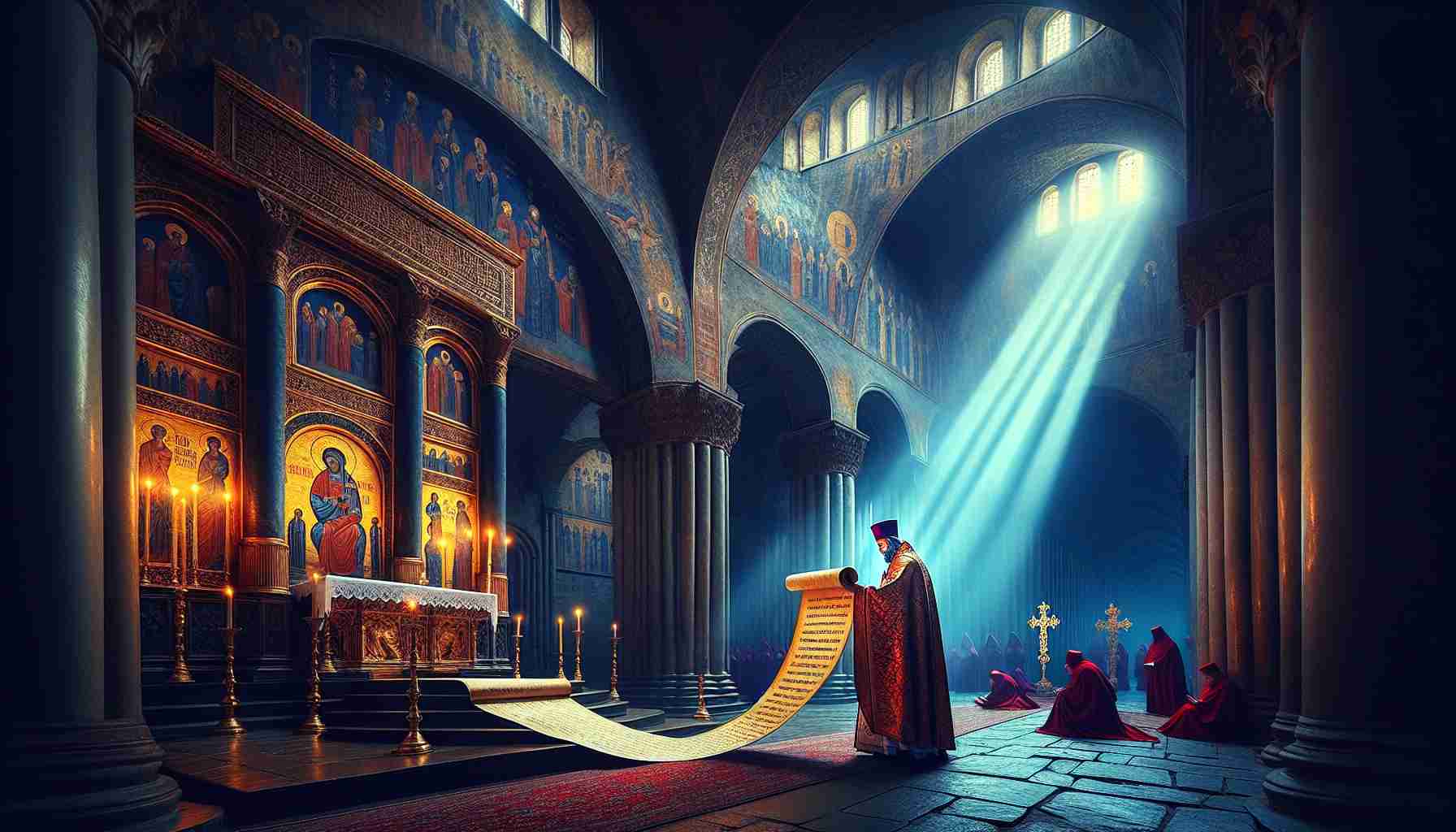

The incense curled like smoke from a censer, tracing invisible patterns through the arched doorways of the Hagia Sophia. In the cool shadow of the marble colonnades, silence clung heavy, broken only by the distant chant of monks rehearsing the hymns of Vespers. The great basilica still stood as it had for centuries—domed, defiant, divine—its golden mosaics shimmering like the promise of heaven. But within its hallowed walls, a storm rumbled, more silent than the sea and twice as deep.
Cardinal Humbert, envoy of Pope Leo IX, strode across the marble floor with the stiffness of Rome itself. Dressed in crimson vestments, he bore the weight of the West’s authority in the folds of his garment and in the scroll sealed with lead that trembled at his hip. At his side walked Frederick of Lorraine, who kept his silence and his misgivings both tied beneath his tongue.
Above them—high in the apse—Christ the Pantokrator stared down from the dome. Eyes solemn. Hands lifted in eternal judgment.
Patriarch Michael Cerularius had not come to greet them. Rumors had curled through Constantinople’s streets like alley cats: the Bishop of Rome had called Byzantium arrogant, its customs corrupt. In turn, the Patriarch called the West barbarous—its unleavened bread, its altered creeds, its claim to primacy—unfit for saints. Neither bishop had yielded. Theology had become siegecraft.
At the center of it all lay a single phrase: filioque—”and from the Son.” The West had inserted those three Latin words into the Creed, insisting the Spirit proceeded from both Father and Son. The East refused, clutching the original Greek like a relic, holy and unchanging. It was not mere doctrine. It was identity.
Cardinal Humbert reached the altar at the center of the nave and unrolled the bull of excommunication with holy deliberation. The scroll cracked like dry parchment in the echo of the basilica, though every word struck like thunder. With deliberate slowness, he placed the decree upon the altar of Hagia Sophia, where the mysteries of the divine had been proclaimed for five centuries.
It was July 16, 1054.
A watching monk, hidden in the dim arcade beyond the columns, let slip a strangled gasp. Others, muttering in Greek, descended the steps. But Humbert turned without a glance, like a Roman general leaving conquered ground. The doors of the basilica groaned as he went, closing not merely behind him—but between the halves of a Church once called “one.”
Outside, Constantinople’s harbor shimmered under the summer sun, merchants haggled, sails bucked against the wind. Life went on. But the soul of Christendom had cracked.
In the days that followed, the Patriarch retaliated in kind. His scribes inked Rome’s judgment in blackened script. The schism was not born on that day—it had brewed for centuries—but on that afternoon within Hagia Sophia, it was given iron and breath. East and West turned bishops into borders, and a single Body into fractured limbs.
Yet in the quiet cloisters of Mount Athos, in the back chapels of Rome, prayers still rose—an echo of the Son’s own voice: “That they may be one, as we are one” (John 17:22). The words had been spoken beside olive trees, under Gethsemane’s shadows. That longing echoed now across continents torn.
Not all hearts turned cold.
In the monastery of Studion, Brother Nikolaus wept at his desk, scribe’s quill stilled above a half-finished Psalter. He had copied the Creed in both tongues. He understood the Greek and the Latin, the chants of the Divine Liturgy and the Roman Mass. To him, both sang of Christ crucified, both wept at the tomb, both broke bread in trembling hands.
“It should not end this way,” he murmured to his God, staring at the carved wooden cross above his desk. “Not with scrolls and seals, but nails and mercy.”
In time, centuries would pass.
Hagia Sophia would become a mosque, then a museum, then again a mosque. Popes and patriarchs would trade letters and silences. For nearly a millennium, the line carved in that sanctuary’s shadow would twist through nations and hearts. But the prayer of the Garden remained—a seed beneath cold soil.
And on some holy evenings, when the light falls through stained glass or golden dome just so, and choirs tremble in ancient tongues—there are those who still hear it.
Christ’s whisper in the schism’s wound:
“That they may be one.”